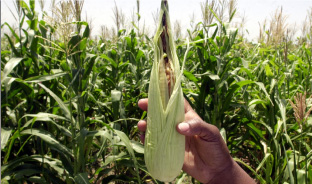
The Food and Agriculture Organization (FAO) plans to encourage climate-smart farming in Malawi, Vietnam, and Zambia, providing these countries with “strategic plans tailored to each country’s own reality.” According to the FAO, “Agriculture policies are the cornerstones for achieving food security and improving livelihoods.” However, current agricultural practices are a problem because they are responsible for 14% of global greenhouse gas emissions, which contribute to climate change, which in turn threatens agricultural productivity and food security.
Climate-smart agriculture seeks to provide a solution to this destructive cycle by promoting sustainable agricultural practices that increase productivity and food security while decreasing greenhouse gas emissions. One promising practice is agroforestry, which may play an important role in improving agricultural techniques and food production in Sub-Saharan Africa. For example, agroforestry would promote planting of the Faidherbia tree, which has been shown to store carbon dioxide, enhance soil water retention and nutrient levels, as well as increase crop yields. Some other climate-smart practices involve conservation agriculture and integrated food-energy systems. Furthermore, climate-smart agriculture focuses on improving various elements of food production systems including soil and nutrient management, water harvesting and use, and pest and disease control.
The three year climate-smart agriculture project aimed at Malawi, Vietnam, and Zambia reflects the idea of the new FAO Director-General, Jose Graziano da Silva, who said that “Hunger eradication should not be separated from responses to other global challenges…such as mitigating and adapting to climate change.”
Posted by: Yekaterina Fomitcheva
Image credit: Food and Agriculture Organization (FAO)